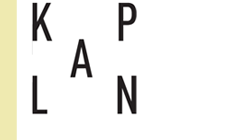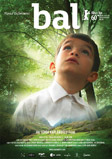Zachary Block / Tiny Mix Tapes
Bal (Honey)
Bal (Honey), winner of the Golden Bear at the 2010 Berlin International Film Festival, is the third and final installment in Turkish director Semih Kaplanoğlu's spiritually autobiographical ”Yusuf Trilogy,” a sort of film bildungsroman told in reverse chronological order: 2008's Milk, dealing with a university aged Yusuf; 2007's Egg, his experiences as an adult. Bal (Honey) most easily falls under the ”coming-of-age” genre, but I wish to stress in this review that it's revelatory to that oft visited fount of heartachy cinema, as it strips away nearly any conceivable sign of an interceding ”adult” narrative voice, channeling the mysteries and anxieties of childhood, but sparing the viewing audience the condescending benefits of either moral instruction or an organizational structure. Beautifully photographed and devoid of any score, save that of the bird calls and rustling of the forest, the film features little to carp about and, though it does covers the heartbreaking ground typical to the genre, never once feels mawkish or manipulative.
So perfectly does Kaplanoğlu approximate the whimsical, dreamlike perspective of a child that any description of his film's admittedly vaporous plot might only be done justice if it were written by a child. Otherwise, commonplace events are lent a profound substance by the script's attenuation of contextualizing details; the passage of time is rarely — that is, until the film's final crisis — clearly demarcated, and disproportionate attention is paid to Yusuf's almost perpetually silent interactions with both his anxious social environments and serene natural spaces: the ”mystical” forest in which his father, Yakup, collects black-hive honey (considered among the finest in the world, and with holy significance for inhabitants of the Black Sea region of Turkey, the film's setting); the arch schoolhouse tended by a faceless, hulking teacher, where Yusuf's stutter renders him a target for ridicule and stigma; the family dinner table, the seat of his warmest bonding with Yakup, but also that of his mother's uneasy and fretful presence.
Speaking to Yusuf's, and by extension the viewer's, awe of the explicable and pronounced coolness towards the aberrant, are two scenes: one, in which Yakov appears to suffer an epileptic seizure, prompting his son to calmly walk to a nearby stream, pause in peaceful observance of the vista before him, and return to his father's aide; and another in which Yusuf, while hiding in a darkened barn after a particularly shameful experience at school, is startled by the presence of a snuffling Donkey. While the former is a quotidian incidental, the latter is the true cataclysm, one of the film's most frightening moments. The effect is that of peering into a memory: schoolmasters, mothers, and fathers are physically imposing, near incoherent dream figures, offering relatively little guidance, while Yusuf is entranced by the poetics of the external world. Watching Kaplanoğlu's film is such an immersive experience that the drawn out ”stuttering sequences” successfully recreate the sensation of anxiety, not merely pity or embarrassment.
|
|
|




